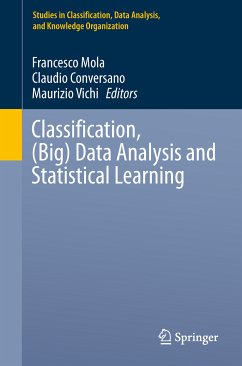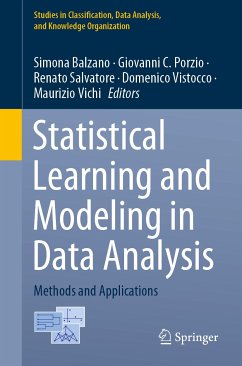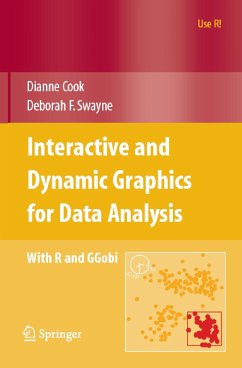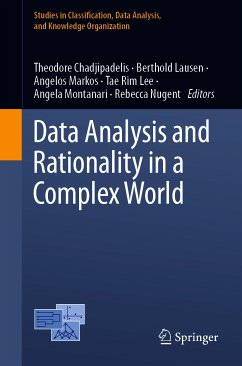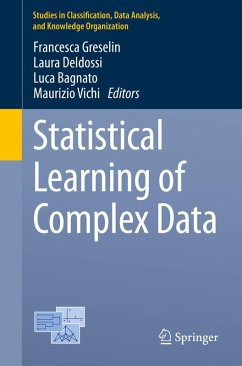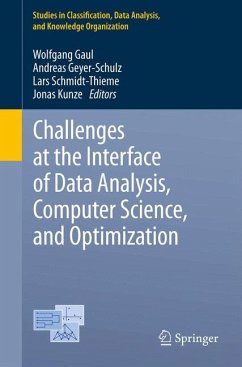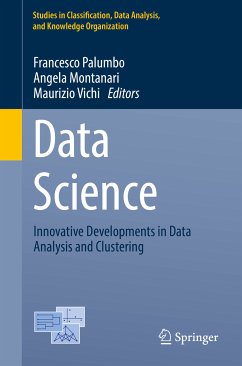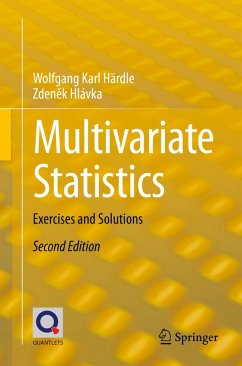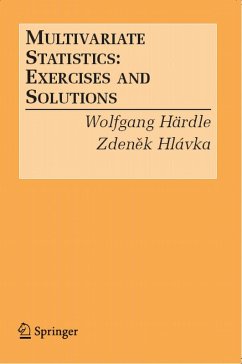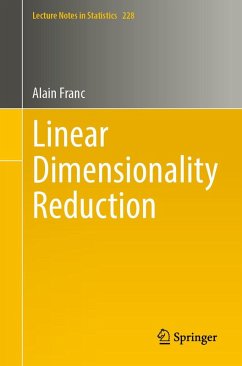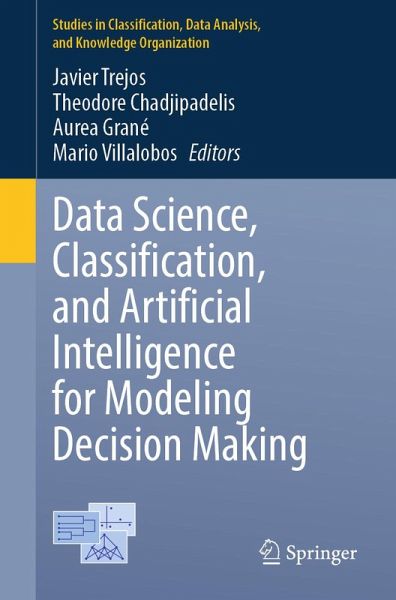
Data Science, Classification, and Artificial Intelligence for Modeling Decision Making (eBook, PDF)
Versandkostenfrei!
Sofort per Download lieferbar
112,95 €
inkl. MwSt.
Weitere Ausgaben:

PAYBACK Punkte
56 °P sammeln!
This book gathers selected and peer-reviewed contributions presented at the 18th Conference of the International Federation of Classification Societies (IFCS 2024), held in San José, Costa Rica, July 15-19, 2024. Covering a wide range of topics, it describes modern methods and real-world applications in data science, classification, and artificial intelligence related to modeling decision making.Numerous novel techniques and innovative applications are investigated, such as anomaly detection in public procurement processes, multivariate functional data clustering, air pollution prediction, be...
This book gathers selected and peer-reviewed contributions presented at the 18th Conference of the International Federation of Classification Societies (IFCS 2024), held in San José, Costa Rica, July 15-19, 2024. Covering a wide range of topics, it describes modern methods and real-world applications in data science, classification, and artificial intelligence related to modeling decision making.
Numerous novel techniques and innovative applications are investigated, such as anomaly detection in public procurement processes, multivariate functional data clustering, air pollution prediction, benchmark generation for probabilistic planning, recommendation systems based on symbolic data analysis, and methods for clustering mixed-type data. Advanced statistical concepts are explored, including Vapnik-Chervonenkis dimensionality, Riemannian statistics, hypothesis testing for interval-valued data, and mixed models. Furthermore, machine learning techniques are applied to predict soil bacterial and fungal communities, classify electoral behavior and political competition, and assess corrosion degradation in mining pipelines.
The diversity of topics discussed in this collection reflects the ongoing advancement and interdisciplinary nature of statistical and data science research, as well as its application across various fields and sectors. These studies contribute to the development of robust methodologies and efficient computational tools to address complex challenges in the era of big data.
The book is intended for researchers and practitioners seeking the latest developments and applications in the field of data science and classification.
Numerous novel techniques and innovative applications are investigated, such as anomaly detection in public procurement processes, multivariate functional data clustering, air pollution prediction, benchmark generation for probabilistic planning, recommendation systems based on symbolic data analysis, and methods for clustering mixed-type data. Advanced statistical concepts are explored, including Vapnik-Chervonenkis dimensionality, Riemannian statistics, hypothesis testing for interval-valued data, and mixed models. Furthermore, machine learning techniques are applied to predict soil bacterial and fungal communities, classify electoral behavior and political competition, and assess corrosion degradation in mining pipelines.
The diversity of topics discussed in this collection reflects the ongoing advancement and interdisciplinary nature of statistical and data science research, as well as its application across various fields and sectors. These studies contribute to the development of robust methodologies and efficient computational tools to address complex challenges in the era of big data.
The book is intended for researchers and practitioners seeking the latest developments and applications in the field of data science and classification.
Dieser Download kann aus rechtlichen Gründen nur mit Rechnungsadresse in A, B, BG, CY, CZ, D, DK, EW, E, FIN, F, GR, HR, H, IRL, I, LT, L, LR, M, NL, PL, P, R, S, SLO, SK ausgeliefert werden.



